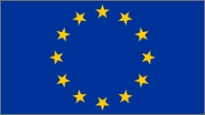Overcoming regulatory barriers: key strategies for a sustainable energy future
Overcoming regulatory barriers
Overcoming regulatory barriers is crucial for advancing towards a sustainable and flexible energy future. The European project BeFlexible is at the forefront of this transformation, addressing key regulatory challenges and driving innovation in the energy sector.
The importance of flexibility in energy markets
As we integrate more distributed energy resources, the need for flexibility becomes paramount. Flexibility should be seen as one of several tools to optimize energy systems, alongside significant investments in grid infrastructure. Multiple procurement methods for flexibility, such as flexible connection agreements and long-term flexibility contracts, are essential for balancing infrastructure reinforcement and flexibility mechanisms.
Governance and market structure
Clear governance is a cornerstone of successful flexibility markets. Responsabilities, particularly those of network operators, must be clearly defined to ensure system safety and efficient market operations. Well-integrated flexibility markets within existing market structures and network planning processes are vital for realizing their full potential.
Innovation and consumer engagement
Innovation plays a decisive role in overcoming regulatory barriers, specially in consumer engagement. Bringing consumers into flexibility markets through smart home systems, electric vehicle chargers, and energy storage is crucial. Developing innovative business models that encourage active consumer participation will help these markets mature and deliver value.
Interoperability and data spaces
Interoperability is critical for scaling solutions across the European Union. Collaboration among stakeholders to develop interoperable systems within a decentralized data space benefits both consumers and manufacturers. Projects like BeFlexible, ENFLATE, and STREAM are leading the way in this regard, exploring key regulatory challenges and developing integrated flexibility marketplaces.
R&D contributions to energy transition and European competitiveness
Research and development projects are essential for integrating renewable energy sources, increasing grid flexibility, and driving the development of smart energy systems. By focusing on innovations such as flexibility markets and digital solutions, these projects bolster the competitiveness of European industries and support Europe’s leadership in clean energy.
Key strategies for overcoming regulatory barriers
- Comprehensive Regulatory Reform: Adopt a holistic approach to reform existing regulations, simplifying bureaucratic processes and eliminating abusive litigation practices.
- Regulatory Agility: Regulators must adapt quickly to technological and market changes, creating flexible regulatory frameworks that can evolve over time.
- Collaboration and Stakeholder Engagement: Foster collaboration among policymakers, industry players, and legal experts to identify regulatory bottlenecks and develop tailored solutions.
- Incentives for Innovation: Implement incentives that promote investment in clean technologies and active participation from consumers and other market actors.
- Digitalization and Connectivity: Enhance network digitalization and connectivity to facilitate the integration of renewable energy sources and improve operational efficiency.
BeFlexible: leading the way in innovation and adaptation
BeFlexible is a prime example of how innovation and cooperation can overcome regulatory barriers. Through its pilots in various European countries, BeFlexible demonstrates how to increase system flexibility and pave the way for a more sustainable and efficient energy future.
Real-World Applications and Success Stories
BeFlexible’s pilots in Italy, Sweden, Spain, and France showcase practical applications of regulatory flexibility. For instance, in Italy, the project has successfully implemented flexible connection agreements that allow for more efficient energy distribution. In Sweden, long-term flexibility contracts have been established, providing stability and encouraging investment in renewable energy sources.
Future Prospects and Ongoing Research
The ongoing research within BeFlexible continues to explore new methods for enhancing regulatory frameworks. By collaborating with policymakers and industry leaders, the project aims to create a more adaptable and resilient energy system. This includes developing new business models that can be replicated across Europe, ensuring that the benefits of flexibility are widely distributed.
Conclusion
Overcoming regulatory barriers is fundamental for advancing towards a flexible and sustainable energy system. Projects like BeFlexible are leading the way, showing how innovation and collaboration can drive successful energy transitions. Join the conversation and be part of the change!





